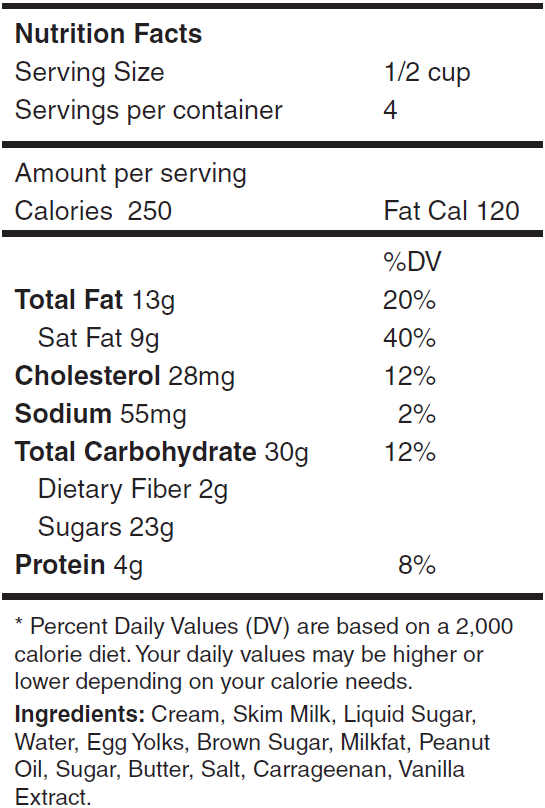Attach A-1_Questionnaire to Test_English
Attach A-1_Questionnaire to Test_English.docx
Questionnaire Cognitive Interviewing and Pretesting (NCI)
Attach A-1_Questionnaire to Test_English
OMB: 0925-0589
ATTACHMENT A-1: HINTS 4 QUESTIONNAIRE CONTENT (CYCLE 3) – ENGLISH
OMB No. 0952-0589
Exp. 04/30/2014
HINTS 4, CYCLE 3 DRAFT INSTRUMENT FOR TESTING
STATEMENT OF PRIVACY: Collection of this information is authorized by The Public Health Service Act, Sections 411 (42 USC 285 a) and 412 (42 USC 285a-1.a and 285a1.3). The purpose of this data collection is to evaluate whether the survey questions are easy to understand. The results of the data collection will be used to improve the survey instrument. Rights of study participants are protected by The Privacy Act of 1974. Participation is voluntary, and there are no penalties for not participating or withdrawing from the study at any time. Refusal to participate will not affect your benefits in any way. The information collected in this study will be kept private under the Privacy Act and will only be seen by people authorized to work on this project. The report summarizing the findings will not contain any names or identifying information. Identifying information will be destroyed when the project ends.
NOTIFICATION TO RESPONDENT OF ESTIMATED BURDEN: Public reporting burden for this collection of information is estimated to average 90 minutes per response, including the time for reviewing instructions, searching existing data sources, gathering and maintaining the data needed, and completing and reviewing the collection of information. An agency may not conduct or sponsor, and a person is not required to respond to, a collection of information unless it displays a currently valid OMB control number. Send comments regarding this burden estimate or any other aspect of this collection of information, including suggestions for reducing this burden to: NIH, Project Clearance Branch, 6705 Rockledge Drive, MSC 7974, Bethesda, MD 20892-7974, ATTN: PRA (0925-0589). Do not return the completed form to this address.
A: Looking For Health Information |
A1. Have you ever looked for information about health or medical topics from any source?


Yes

No GO TO A7 in the next column

X
A2. The most recent time you looked for information about health or medical topics, where did you go first?
Mark only one.
Books
Brochures, pamphlets, etc.
Cancer organization
Family
Friend/Co-worker
Doctor or health care provider
Internet
Library
Magazines
Newspapers
Telephone information number

Complementary, alternative, or unconventional practitioner

Other-Specify
A3. Did you look or go anywhere else that time?
Yes
No
A4. The most recent time you looked for information about health or medical topics, who was it for?
Myself
Someone else
Both myself and someone else
A5. Do family members and friends ask you for information or advice on health topics?
Yes
No
A6. Based on the results of your most recent search for information about health or medical topics, how much do you agree or disagree with each of the following statements?

|

|
|
|
|
a. It took a lot of effort to get the information you needed |
|
|
|
|
b. You felt frustrated during your search for the information |
|
|
|
|
c. You were concerned about the quality of the information |
|
|
|
|
d. The information you found was hard to understand |
|
|
|
|
A7. Overall, how confident are you that you could get advice or information about health or medical topics if you needed it?
Completely confident
Very confident
Somewhat confident
A little confident
Not confident at all
A8. In general, how much would you trust information about health or medical topics from each of the following?


|
|
|
|
|
a. A doctor |
|
|
|
|
b. Family or friends |
|
|
|
|
c. Newspapers or magazines |
|
|
|
|
d. Radio |
|
|
|
|
e. Internet |
|
|
|
|
f. Television |
|
|
|
|
g. Government health agencies |
|
|
|
|
h. Charitable organizations |
|
|
|
|
i. Religious organizations and leaders |
|
|
|
|
A9. Imagine that you had a strong need to get information about health or medical topics. Where would you go first?

X
Mark only one.
Books
Brochures, pamphlets, etc.
Cancer organization
Family
Friend/Co-worker
Doctor or health care provider
Internet
Library
Magazines
Newspapers
Telephone information number

Complementary,
alternative, or unconventional
practitioner

Other-Specify
A10. Have you ever looked for information about cancer from any source?
Yes
No
A11. How much attention do you pay to information about health or medical topics from each of the following sources?

|

|
|
|
|
a. In online newspapers |
|
|
|
|
b. In print newspapers |
|
|
|
|
c. In special health or medical magazines or newsletters |
|
|
|
|
d. On the Internet |
|
|
|
|
e. On the radio |
|
|
|
|
f. On local television news programs |
|
|
|
|
g. On national or cable television news programs |
|
|
|
|
h. On social networking sites such as Facebook or Twitter |
|
|
|
|
B: Using the Internet to Find Information |
B1. Do you ever go on-line to access the Internet or World Wide Web, or to send and receive e-mail?


Yes

No GO TO C1 on the next page
B2. When you use the Internet, do you access it through...
|
Yes |
No |
|
|
|
a. A regular dial-up telephone line |
|
|
b. Broadband such as DSL, cable or FiOS |
|
|
c. A cellular network (i.e., phone, 3G/4G) |
|
|
d. A wireless network (Wi-Fi) |
|
|

B3. Do you access the Internet any other way?

Yes – Specify
No
B5. Is there a specific Internet site you like to go to for health or medical information?


Yes

No GO TO B7 on the next page
B6. Specify which Internet site you especially like as a source of health or medical information:
B7. In the last 12 months, have you used the Internet for any of the following reasons?
|
Yes |
No |
|
|
|
a. Visited a social networking site, such as Facebook or LinkedIn |
|
|
b. Wrote in an online diary or blog (i.e., Web log) |
|
|
c. Shared photos, videos, or other multimedia content on sites such as YouTube or Instagram |
|
|
d. Downloaded to a mobile device, such as an MP3 player, cell phone, tablet computer or electronic book device |
|
|
B8. In the last 12 months, have you used the Internet for any of the following reasons?
|
Yes |
No |
|
|
|
|
|
|
b. Looked for health or medical information for someone else |
|
|
c. Looked for information about quitting smoking |
|
|
d. Bought medicine or vitamins online |
|
|
e. Participated in an online forum or support group for people with a similar health or medical issue |
|
|
f. Used a website to help you with your diet, weight, or physical activity |
|
|
g. Looked for a health care provider |
|
|
h. Downloaded health information to a mobile device, such as an MP3 player, cell phone, tablet computer or electronic book device |
|
|
i. Shared health information on social media sites, such as Facebook or Twitter |
|
|
j. Exchanged social support about health concerns with family or friends |
|
|
k. Kept track of personal health information such as care received, test results, or upcoming medical appointments |
|
|
l. Watched a health-related video on YouTube |
|
|

B9. Have you done anything else health-related on the Internet?

Yes-Specify
No
B10. Scientists doing research should be able to review my medical information if the information cannot be linked to me personally.
Strongly agree
Agree
Disagree
Strongly disagree
B11. Which of the following methods have you used to electronically communicate (send or receive) health or medical information with your doctor or health care provider? Check all that apply.
Text message
Secure message
Smart phone application
Video conference on your mobile phone (e.g., Skype, Facetime, etc.)
Social media (e.g., Facebook, Google+, CaringBridge, etc.)
Other (please specify):_______________________
B12.What types of medical or health information would you feel uncomfortable receiving electronically from your doctor or health care provider through your mobile phone due to privacy or security concerns? Check all that apply:
Appointment Reminders
General Health Tips
Medication Reminders
Lab/Test Results
Diagnostic Information (i.e., Medical Illnesses or Diseases)
None of the above
B13. What types of medical or health information would you feel uncomfortable sending electronically to your doctor or health care provider through your mobile phone due to privacy and security concerns? Check all that apply:
Vital signs (e.g., heart rate, blood pressure, glucose levels, etc.)
Lifestyle behaviors (e.g., physical activity, food intake, sleep patterns, etc.)
Symptoms (e.g., nausea, pain, dizziness, etc.)
Digital images/video (e.g., photos of skin lesions)
None of the above
B14. How much do you agree with the following statement: “I would be interested in electronically communicating (send or receive) medical or health information with my health care providers and doctors using my mobile phone despite any concerns I might have about privacy and security”.
Strongly agree
Agree
Disagree
Strongly disagree
C: Your Health Care |
C1. Not including psychiatrists and other mental health professionals, is there a particular doctor, nurse, or other health professional that you see most often?
Yes
No
C2. Do you have any of the following health insurance or health coverage plans:
|
Yes |
No |
|

|
|
a. Insurance through a current or former employer or union (of you or another family member) |
|
|
b. Insurance purchased directly from an insurance company (by you or another family member) |
|
|
c. Medicare |
|
|
d. Medicaid, Medical Assistance, or any kind of government-assistance plan for those with low incomes or a disability |
|
|
e. TRICARE or other military health care |
|
|
f. VA (including those who have ever used or enrolled for VA health care) |
|
|
g. Indian Health Service |
|
|

C3. Do you have any other health care coverage plan for yourself (please do not include dental or vision plans)?

Yes-Specify
No
C4. About how long has it been since you last visited a doctor for a routine checkup? A routine checkup is a general physical exam, not an exam for a specific injury, illness, or condition.
Within
past year
(anytime less than 12 months ago)
Within
past 2 years
(1 year but less than 2 years ago)
Within
past 5 years
(2 years but less than 5 years ago)
5 or more years ago
Don't know
Never
C5. In the past 12 months, not counting times you went to an emergency room, how many times did you go to a doctor, nurse, or other health professional to get care for yourself?

None GO TO D1 on the next page
1 time
2 times
3 times
4 times
5-9 times
10 or more times
C6. The following questions are about your communication with all doctors, nurses, or other health professionals you saw during the past 12 months…
How often did they do each of the following: |
|
|||||
|
|
|
|
|
|
|
|
a. Give you the chance to ask all the health-related questions you had? |
|
|
|
|
|
|
b. Give the attention you needed to your feelings and emotions? |
|
|
|
|
|
|
c. Involve you in decisions about your health care as much as you wanted? |
|
|
|
|
|
|
d. Make sure you understood the things you needed to do to take care of your health? |
|
|
|
|
|
|
e. Explain things in a way you could understand? |
|
|
|
|
|
|
f. Spend enough time with you? |
|
|
|
|
|
|
g. Help you deal with feelings of uncertainty about your health or health care? |
|
|
|
|
|
C7. In the past 12 months, how often did you feel you could rely on your doctors, nurses, or other health care professionals to take care of your health care needs?
Always
Usually
Sometimes
Never
C8. Overall, how would you rate the quality of health care you received in the past 12 months?
Excellent
Very good
Good
Fair
Poor
C9. In the past 12 months, have you talked to a doctor, nurse, or other health professional about any kind of health information you have gotten from the Internet?
Yes

No GO TO D1 in the next column
C10. In the past 12 months when you talked with a health care professional, how interested were they in hearing about the information you found on-line?
Very interested
Somewhat interested
A little interested
Not at all interested
C11. Have you ever been in a medical research study where you got one of two treatments, such as medicines or surgery procedures?
Yes
No
D: Your Health, Nutrition and Physical Activity |
D1. In general, would you say your health is...
Excellent,
Very good,
Good,
Fair, or
Poor?
D2. Over the past 2 weeks, how often have you been bothered by any of the following problems?


|
|
|
|
|
a. Little interest or pleasure in doing things |
|
|
|
|
b. Feeling down, depressed, or hopeless |
|
|
|
|
c. Feeling nervous, anxious, or on edge |
|
|
|
|
d. Not being able to stop or control worrying |
|
|
|
|
D3. Overall, how confident are you about your ability to take good care of your health?
Completely confident
Very confident
Somewhat confident
A little confident
Not confident at all
D4. How often in the past 12 months would you say you were worried or stressed about having enough money to buy nutritious meals?.
Always
Usually
Sometimes
Rarely
Never
D5. When available, how often do you use menu information on calories in deciding what to order?
Always
Often
Sometimes
Rarely
Never

1 cup of fruit could be:
1 small apple
1 large banana
1 large orange
8 large strawberries
1 medium pear
2 large plums
32 seedless grapes
1 cup (8 oz.) fruit juice
½ cup dried fruit
1 inch-thick wedge of watermelon
D6. About how many cups of fruit (including 100% pure fruit juice) do you eat or drink each day?
None
½ cup or less
½ cup to 1 cup
1 to 2 cups
2 to 3 cups
3 to 4 cups
4 or more cups
D7. About how many cups of vegetables (including 100% pure vegetable juice) do you eat or drink each day?
None
½ cup or less
½ cup to 1 cup
1 to 2 cups
2 to 3 cups
3 to 4 cups

1 cup of vegetables could be:
3 broccoli spears
1 cup cooked leafy greens
2 cups lettuce or raw greens
12 baby carrots
1 medium potato
1 large sweet potato
1 large ear of corn
1 large raw tomato
2 large celery sticks
1 cup of cooked beans
4 or more cups
D8. Not counting any diet soda or pop, about how often do you drink regular soda or pop in a typical week?
Every day
5-6 days a week
3-4 days a week
1-2 days a week
Less often than 1 day a week
I don’t drink any regular soda or pop
D9. In a typical week, how many days do you do any physical activity or exercise of at least moderate intensity, such as brisk walking, bicycling at a regular pace, and swimming at a regular pace?

None GO TO H3 in the next column

1 day per week
2 days per week
3 days per week


4 days per week
5 days per week
6 days per week
7 days per week
D10. On the days that you do any physical activity or exercise of at least moderate intensity, how long do you typically do these activities?
Write a number in one box below.
-
Minutes
Hours
D11. In a typical week, outside of your job or work around the house, how many days do you do leisure-time physical activities specifically designed to strengthen your muscles such as lifting weights or circuit training (do not include cardio exercise such as walking, biking, or swimming)?
None
1 day per week
2 days per week
3 days per week
4 days per week
5 days per week
6 days per week
7 days per week
D12. Over the past 30 days, in your leisure time, how many hours per day, on average, did you sit and watch TV or movies, surf the web, or play computer games? Do not include “active gaming” such as Wii.
-
Hours per day
D13. About how tall are you without shoes?
-
Feet and
Inches
D14. About how much do you weigh, in pounds, without shoes?
-
Pounds
This information is on the back of a container of a pint of ice cream

D15. If you eat the entire container, how many calories will you eat?
_____
D16. If you are allowed to eat 60 g of carbohydrates as a snack, how much ice cream could you have?
_____
D17. Your doctor advises you to reduce the amount of saturated fat in your diet. You usually have 42 g of saturated fat each day, which includes 1 serving of ice cream. If you stop eating ice cream, how many grams of saturated fat would you be consuming each day?
_____ grams
D18. If you usually eat 2500 calories in a day, what percentage of your daily value of calories will you be eating if you eat one serving?
_____ percent
D19. Pretend that you are allergic to the following substances: Penicillin, peanuts, latex gloves and bee stings.
Is it safe for you to eat this ice cream?
Yes
No
Not sure
D20. How many times in the past 12 months have you used a tanning bed or booth?
0 times
1 to 2 times
3 to 10 times
11 to 24 times
25 or more times
D21. When you are outside for more than one hour on a warm, sunny day, how often do you wear sunscreen?
Never
Rarely
Sometimes
Often
Always
Don’t go out on sunny days
D22. When you are outside for more than one hour on a warm, sunny day, how often do you ...

|

|
|
|
|

|
a. wear long pants? |
|
|
|
|
|
b. wear a hat that shades your face, ears and neck? |
|
|
|
|
|
c. wear a shirt with sleeves that cover your shoulders? |
|
|
|
|
|
d. stay in the shade or under an umbrella? |
|
|
|
|
|
D23. How much sleep do you usually get…
|
Hours |
Minutes |
||||
|
|
|
||||
a. On a weekday (e.g., workday or school day)? |
|
|
||||
b. On a weekend (e.g., non-work or non-school day)? |
|
|
The following questions are about control over different parts of your life that may be affected by the experience of breast cancer. The questions ask about how much control you personally have over certain aspects of your life. Please read each question carefully and use the following rating scale to select the response that best reflects your current control beliefs. Space is provided to fill in a response to each item.
No control
A little bit of control
A moderate amount of control
A great deal of control
This item does not apply to you
D24. How much personal control do you think you have over your physical symptoms, including…
No control
A little bit of control
A moderate amount of control
A great deal of control
This item does not apply to you
|
|
|
|
|
|
|||||
a. fatigue or weakness? |
|
|
|
|
|
|||||
b. nausea or vomiting? |
|
|
|
|
|
|||||
c. trouble sleeping? |
|
|
|
|
|
|||||
d. mobility/flexibility? |
|
|
|
|
|
|||||
e. pain or discomfort? |
|
|
|
|
|
|||||
f. arm swelling? |
|
|
|
|
|
|||||
D25. How much personal control do you think you have over your medical decisions and care, including…
No control
A little bit of control
A moderate amount of control
A great deal of control
This item does not apply to you
|
|
|
|
|
|
a. gathering important information and getting your questions answered? |
|
|
|
|
|
b. receiving the treatments you want? |
|
|
|
|
|
c. choosing a doctor you are comfortable with? |
|
|
|
|
|
d. scheduling your treatments at convenient times? |
|
|
|
|
|
D26. How much personal control do you think you have over the outcomes of your breast cancer, including…
No control
A little bit of control
A moderate amount of control
A great deal of control
This item does not apply to you
|
|
|
|
|
|
a. recovering from your breast cancer? |
|
|
|
|
|
b. preventing breast cancer from coming back? |
|
|
|
|
|
D27. How much personal control do you think you have over your emotions, including…
No control
A little bit of control
A moderate amount of control
A great deal of control
This item does not apply to you
|
|
|
|
|
|
a. feeling sad? |
|
|
|
|
|
b. feeling out of control? |
|
|
|
|
|
c. feeling guilty? |
|
|
|
|
|
d. outbursts of crying? |
|
|
|
|
|
e. feeling angry? |
|
|
|
|
|
f. worrying about the future? |
|
|
|
|
|
D28. How much personal control do you think you have over your relationships with other people in your life, including your…
No control
A little bit of control
A moderate amount of control
A great deal of control
This item does not apply to you
|
|
|
|
|
|
a. partner/spouse? |
|
|
|
|
|
b. other family members? |
|
|
|
|
|
c. friends? |
|
|
|
|
|
d. co-workers? |
|
|
|
|
|
e. medical care providers (doctors and nurses) |
|
|
|
|
|
D29. In general, how much personal control do you think you have over your life, including…
No control
A little bit of control
A moderate amount of control
A great deal of control
This item does not apply to you
|
|
|
|
|
|
a. the events/things that are most important to you? |
|
|
|
|
|
b. your personal problems? |
|
|
|
|
|
c. overcoming challenges that come your way? |
|
|
|
|
|
E: Patient Activation |
E1. Do you always, usually, sometimes or never bring with you to your doctor visits a list of questions or concerns you want to cover?
Always
Usually
Sometimes
Never
Don’t know
E2. Do you always, usually, sometimes or never take a list of all your prescribed medicines to your doctor visits?
Always
Usually
Sometimes
Never
Not applicable
Don’t know
E3. The following always, usually, sometimes or never happens: I ask my doctor to explain a test, treatment, or procedure to me in detail.
Always
Usually
Sometimes
Never
Not applicable
E4. Have you ever asked your doctor questions about any treatment, test or prescription that he or she has recommended?
Yes
No
Does not apply
E5. In the past 12 months, have you talked to a doctor, nurse, or other health professional about any kind of health information you have gotten from . .
|
Yes |
No |
||||
|
|
|
||||
a. The internet? |
|
|
||||
b. Magazines? |
|
|
||||
c. Newspapers? |
|
|
||||
d. Advertising? |
|
|
||||
|
b. Family or friends |
|
|
|
||
|
c. Newspapers or magazines |
|
|
|
||
|
d. Radio |
|
|
|
||
|
e. Internet |
|
|
|
||
|
f. Television |
|
|
|
||
|
g. Government health agencies |
|
|
|
||
|
h. Charitable organizations |
|
|
|
||
|
i. Religious organizations and leaders |
|
|
|
||
E6. Have you ever checked the medication that a pharmacist gave you with the prescription your doctor wrote?
Yes
No
Does not apply
E7. How often do you do your own research on a health or medical topic after seeing your doctor?
Very often
Often
Sometimes
Rarely
Never
E8. Taking an active role in my own health care is the most important factor in determining my health and ability to function.
Strongly agree
Agree
Disagree
Strongly Disagree
Not applicable
E9. When all is said and done, I am the person who is responsible for managing my health condition
Strongly agree
Agree
Disagree
Strongly Disagree
Not applicable
E10. Do you always, usually, sometimes or never make sure you understand the results of any medical test or procedure? (An example would be an x-ray, blood tests, or EKG for heart conditions)
Always
Usually
Sometimes
Never
Don’t know
E11. Do you always, usually, sometimes or never read information about a new prescription, such as side effects and precautions?
Always
Usually
Sometimes
Never
Don’t know
E12. Have you ever brought a friend or a relative to a doctor’s appointment so that they could help ask questions, understand, or remember what the doctor was telling you?
Yes
No
Does not apply
E13. Have you ever called to check on the results of a medical test you had done?
Yes
No
Does not apply
E14. Have you ever consulted with your doctor about the hospital you go to?
Yes
No
Does not apply
E15. Have you ever talked to a surgeon about the details of surgery, such as exactly what they will be doing, how long it will take and the recovery process?
Yes
No
Does not apply
E16. Please tell me how confident you are that you can identify when it is necessary for you to get medical care.
Very confident
Confident
Somewhat confident
Not at all confident
Don’t know
E17. The following always, usually, sometimes or never happens: I ask my doctor to explain a test, treatment, or procedure to me in detail.
Always
Usually
Sometimes
Never
Not applicable
Don’t know
E18. The following always, usually, sometimes or never happens: Before I go to a new doctor, I find out as much as I can about his or her qualifications
Always
Usually
Sometimes
Never
Not applicable
Don’t know
E19. Instead of waiting for them to tell me, I usually ask the doctor or nurse immediately after an exam about my health
Strongly agree
Somewhat agree
Somewhat disagree
Strongly disagree
E20. I usually don’t ask the doctor or nurse many questions about what they’re doing during a medical exam
Strongly agree
Somewhat agree
Somewhat disagree
Strongly disagree
E21. I do what I can to get checked for cancer.
Strongly agree
Somewhat agree
Somewhat disagree
Strongly disagree
E23. In your opinion, how good is cancer screening at separating people who have cancer from people who don’t have cancer?
Not good at all
Slightly good
Pretty good
Very good
E24. As far as you know, can most cancer screening tests show...
|
Yes |
No |
DK |

|
|
|
|
a. Whether a person actually has cancer? |
|
|
|
b. What stage of cancer a person has? |
|
|
|
c. Whether a person has pre-cancer? |
|
|
|
d. What the chances are that a person might have cancer? |
|
|
|
F: Women and Cancer |
F1. Are you male or female?

Male GO TO G8


Female
F2. Has a doctor ever told you that you could choose whether or not to have the Pap test?
Yes
No
F3. How long ago did you have your most recent Pap test to check for cervical cancer?
A year ago or less
More than 1, up to 2 years ago
More than 2, up to 3 years ago
More than 3, up to 5 years ago
More than 5 years ago
I have never had a Pap test
F4. A mammogram is an x-ray of each breast to look for breast cancer. During the past 12 months, did a doctor, nurse, or other health professional advise you to get a mammogram?
Yes
No
Not sure
F5. A mammogram is an x-ray of each breast to look for cancer.
Has a doctor ever told you that you could choose whether or not to have a mammogram?
Yes
No
F6. When did you have your most recent mammogram to check for breast cancer, if ever?
A year ago or less
More than 1, up to 2 years ago
More than 2, up to 3 years ago
More than 3, up to 5 years ago
More than 5 years ago
I have never had a mammogram
F7. Is there any particular reason why you haven’t had a mammogram {yet}?
______________________________________________________________________
F8. Is there any particular reason why you haven’t had a mammogram {in the past 2 years}?
______________________________________________________________________
G: Screening for Cancer |
G1. A vaccine to prevent HPV infection is available and is called the HPV shot, cervical cancer vaccine, GARDASIL®, or Cervarix®.
Has a doctor or other health care professional ever talked with you about the HPV shot or vaccine?
Yes
No
G2. Have you ever heard of HPV? HPV stands for Human Papillomavirus
Yes
No
Not sure
G3. Have you ever heard of HPV? HPV stands for Human Papillomavirus. It is not HIV, HSV, or herpes.
Yes
No
Not sure
G4. Do you think that HPV causes cervical cancer?
Yes
No
Not sure
G5. Do you think HPV can cause cervical cancer?
Yes
No
Not sure
G6. Do you think that HPV is a sexually transmitted disease?
Yes
No
Not sure
G7. Do you think that HPV will often go away on its own without treatment?
Yes
No
Not sure
G8. There are a few different tests to check for colon cancer. These tests include:
A colonoscopy – For this test, a tube is inserted into your rectum and you are given medication that may make you feel sleepy. After the procedure, you need someone to drive you home.
A sigmoidoscopy – For this test, you are awake when the tube is inserted into your rectum. After the test you can drive yourself home.
A stool blood test – For this test, you collect a stool sample at home, and then provide it to a doctor or lab for testing.
Has a doctor ever told you that you could choose whether or not to have a test for colon cancer?
Yes
No
G9. Have you ever had one of these tests to check for colon cancer?
Yes
No

G10. The following questions are about discussions doctors or other health care professionals may have with their patients about the PSA test that is used to look for prostate cancer.
Have you ever had a PSA test?
Yes
No
G11. Has a doctor ever discussed with you whether or not you should have the PSA test?


Yes

No GO TO H1 below
G12. In that discussion, did the doctor ask you whether or not you wanted to have the PSA test?
Yes
No
G13. Did a doctor ever tell you that some experts disagree about whether men should have PSA tests?
Yes
No
G14. Has a doctor or other health care professional ever told you that...
|
Yes |
No |
|
|
|
a. The PSA test is not always accurate? |
|
|
b. Some types of prostate cancer are slow-growing and need no treatment? |
|
|
c. Treating any type of prostate cancer can lead to serious side-effects, such as problems with urination or having sex? |
|
|
H: Your Cancer History |
H1. Have you ever been diagnosed as having cancer?


Yes

No GO TO H4 on the next page

X
H2. What type of cancer did you have?
Mark all that apply.
Bladder cancer
Bone cancer
Breast cancer
Cervical cancer (cancer of the cervix)
Colon cancer
Endometrial cancer (cancer of the uterus)
Head and neck cancer
Hodgkin's lymphoma
Leukemia/Blood cancer
Liver cancer
Lung cancer
Melanoma
Non-Hodgkin lymphoma
Oral cancer
Ovarian cancer
Pancreatic cancer
Pharyngeal (throat) cancer
Prostate cancer
Rectal cancer
Renal (kidney) cancer
Skin cancer, non-melanoma

Stomach cancer

Other-Specify
H3. At what age were you first told that you had cancer?
-
Age
H4. Has a doctor or other member of your medical team discussed clinical trials as a treatment option for your cancer?
Yes
No
H5. Clinical trials are research studies that involve people. They are designed to test the safety and effectiveness of new treatments and to compare new treatments with the standard care that people currently get. Have you ever heard of a clinical trial?
Yes
No
Don’t know
H6. Did you hear about clinical trials from...
|
Yes |
No |
|
|
|
a. Doctor, nurse, or other medical professional? |
|
|
b. Family member or friend |
|
|
c. Internet |
|
|
d. A specific organization |
|
|
e. Newspaper, television, or radio |
|
|
f. A fictional t.v show, movie or book |
|
|
g. An advertisement |
|
|
h. A health fair |
|
|
i. Some other source |
|
|
j. I don’t know the source |
|
|
H7. Have you ever participated in a clinical trial for treatment of your cancer?
Yes
No
Don’t know
H8. Have you ever participated in a clinical trial?
Yes
No
Don’t know
H9. If you were diagnosed with cancer, how likely is it that you would participate in a research study of a new treatment?
Very likely
Somewhat likely
Equally likely as unlikely
Somewhat unlikely
Very unlikely

I: Beliefs About Cancer |

Think about cancer in general when answering the questions in this section.
I1. How likely are you to get cancer in your lifetime?
Very unlikely
Unlikely
Neither unlikely nor likely
Likely
Very likely
I2. Compared to other people your age, how likely are you to get cancer in your lifetime?
Much less likely
Less likely
About the same
More likely
Much more likely
I3. Select one answer that best represents your opinion about the statement: “I feel like I could easily get cancer in my lifetime.”
I feel very strongly that this will NOT happen
I feel somewhat strongly that this will NOT happen
I feel I am just as likely to get cancer as I am to not get cancer
I feel somewhat strongly that this WILL happen
I feel very strongly that this WILL happen
I4. How much do you agree or disagree with each of the following statements?

|

|
|
|
|
a. It seems like everything causes cancer |
|
|
|
|
b. There’s not much you can do to lower your chances of getting cancer |
|
|
|
|
c. There
are so many different recommendations about preventing cancer,
it's hard |
|
|
|
|
d. In adults, cancer is more common than heart disease |
|
|
|
|
I5. As far as you know, who has a greater chance of getting cancer – a person with a 1 in 1,000 chance of getting cancer, or a person with a 1 in 100 chance?
1 in 1,000 is a greater chance of getting cancer
1 in 100 is a greater chance of getting cancer
I6. Have any of your family members ever had cancer?
Yes
No
Not sure
I7. Which of the following numbers represents the biggest risk of getting a disease?
1 in 100
1 in 1000
1 in 10
I
I8. When people tell you the chance of something happening, do you prefer that they use words (“it rarely happens”) or numbers (“there’s a 1% chance”)?
1 - Always Prefer Words
2
3
4
5
6 - Always Prefer Numbers
I9. People can talk about the chance of something happening using either words like “it rarely happens” or numbers, like “there’s a 5% chance. When people tell you the chance of something happening do you prefer that they use words or numbers?
Prefer Words
Prefer Numbers
No preference
I10. In the past 30 days, how often have you felt…
(5 point scale: very slightly or not at all through extremely)
All of the time
Most of the time
Some of the time
A little of the time
None of the time
|
|
|
|
|
|
a. Happy? |
|
|
|
|
|
b. Angry? |
|
|
|
|
|
c. Anxious? |
|
|
|
|
|
d. Hopeful? |
|
|
|
|
|
I11. How likely is it that the average {man/woman} your age will develop cancer in {his/her} lifetime?
Very likely
Somewhat likely
Neither likely or unlikely
Somewhat unlikely
Very unlikely
I12. How likely are you to get diabetes in your lifetime?
I have diabetes
Very likely
Somewhat likely
Neither likely or unlikely
Somewhat unlikely
Very unlikely
I13. How likely are you to get heart disease in your lifetime?
I have heart disease
Very likely
Somewhat likely
Neither likely or unlikely
Somewhat unlikely
Very unlikely
I14. How much do you agree or disagree with each of the following statements?

|

|
|
|
|
a. When I feel threatened or anxious I find myself thinking about my strengths |
|
|
|
|
b. When I feel threatened or anxious I find myself thinking about my values |
|
|
|
|
c. When I feel threatened or anxious I find myself thinking about my strengths and values |
|
|
|
|
d. I hardly ever expect things to go my way |
|
|
|
|
e. I’m always optimistic about my future |
|
|
|
|
f. When I think about cancer, I think about death |
|
|
|
|
I15. How objective would the following sources be in evaluating new guidelines for how often women should get pap tests (cervical cancer screening)?
Not at all
A little
Some
A lot
|
|
|
|
|
|
a. A professional organization of OB/GYNs? |
|
|
|
|
|
b. A government-appointed panel of experts |
|
|
|
|
|
c. A family member |
|
|
|
|
|
d. The media |
|
|
|
|
|
e. Your primary care doctor |
|
|
|
|
|
f. Your OB/GYN (for women) |
|
|
|
|
|
g. A family member |
|
|
|
|
|
h. The media |
|
|
|
|
|
I16. How much would you trust these individuals in evaluating new guidelines for how often women should get pap tests (cervical cancer screening)?
Not at all
A little
Some
A lot
a. A professional organization of OB/GYNs? |
|
|
|
|
|
b. A government-appointed panel of experts |
|
|
|
|
|
c. A family member |
|
|
|
|
|
d. The media |
|
|
|
|
|
e. Your primary care doctor |
|
|
|
|
|
f. Your OB/GYN (for women) |
|
|
|
|
|
g. A family member |
|
|
|
|
|
h. The media |
|
|
|
|
|
I17. How high quality would recommendations be from the following individuals in evaluating new guidelines for how often women should get pap tests (cervical cancer screening)?
Not at all
A little
Some
A lot
|
|
|
|
|
|
a. A professional organization of OB/GYNs? |
|
|
|
|
|
b. A government-appointed panel of experts |
|
|
|
|
|
c. A family member |
|
|
|
|
|
d. The media |
|
|
|
|
|
e. Your primary care doctor |
|
|
|
|
|
f. Your OB/GYN (for women) |
|
|
|
|
|
g. A family member |
|
|
|
|
|
h. The media |
|
|
|
|
|
K: Medical Research & Medical Records |
K1. As far as you know, do any of your doctors or other health care providers maintain your medical information in a computerized system?
Yes
No
K2. Please indicate how important each of the following statements is to you.

|

|
|
|
a. Doctors and other health care providers should be able to share your medical information with each other electronically |
|
|
|
b. You should be able to get to your own medical information electronically |
|
|
|
K3. How confident are you that safeguards (including the use of technology) are in place to protect your medical records from being seen by people who aren’t permitted to see them?
Having safeguards (including the use of technology) in place has to do with the security of your medical records.
Very confident
Somewhat confident
Not confident
K4. How confident are you that you have some say in who is allowed to collect, use and share your medical information?
Having a say in who can collect, use and share your medical information has to do with the privacy of your records
Very confident
Somewhat confident
Not confident
K5. Have you ever kept information from your health care provider because you were concerned about the privacy or security of your medical record?
Yes
No
K6. If your medical information is sent by fax from one health care provider to another, how concerned are you that an unauthorized person would see it?
Very concerned
Somewhat concerned
Not concerned
K7. If your medical information is sent electronically from one health care provider to another, how concerned are you that an unauthorized person would see it? (Electronically means from computer to computer, instead of by telephone, mail, or fax machine).
Very concerned
Somewhat concerned
Not concerned
L: Tobacco Products |
L1. Have you smoked at least 100 cigarettes in your entire life?


Yes

No GO TO L5
L2. How often do you now smoke cigarettes?
Everyday
Some days
Not at all
L3. At any time in the past year, have you stopped smoking for one day or longer because you were trying to quit?
Yes
No
L4. Are you seriously considering quitting smoking in the next six months?
Yes
No
L5. How much do you agree or disagree with this statement: “Smoking behavior is something basic about a person that they can’t change very much.”
Strongly agree
Somewhat agree
Somewhat disagree
Strongly disagree
L6. In your opinion, do you think that some types of cigarettes are less harmful to a person’s health than other types?
Yes
No
Don’t know
L7. In your opinion, do you think that some smokeless tobacco products, such as chewing tobacco, snus and snuff are less harmful to a person’s health than cigarettes?
Yes
No
Don’t know
L8. Compared to people who smoke every day, do you think people who smoke just some days have less or more risk of getting health problems in their lifetime?
Much less risk
Less risk
About the same risk
More risk
Much more risk
L9. New types of cigarettes are now available called electronic cigarettes (also known as e-cigarettes or personal vaporizers). These products deliver nicotine through a vapor. Compared to smoking cigarettes, would you say that electronic cigarettes are …
Much less harmful,
Less harmful,
Just as harmful,
More harmful,
Much more harmful, or
I’ve never heard of electronic cigarettes
L10. Do you believe that the United States Food and Drug Administration (FDA) regulates tobacco products in the U.S.?
Yes
No
Don’t know
L11. About how long has it been since you completely quit smoking cigarettes?
Less than 1 month ago
3 months to less than 6 months ago
6 months to less than 1 year ago
1 year to less than 5 years ago
5 years to less than 15 years ago
15 years ago
L12. When you last smoked every day, how many cigarettes did you usually smoke each day?
1-9
10-19
20-29
30-39
40+
L13. On the average, how many cigarettes do you now smoke a day?
1-9
10-19
20-29
30-39
40+
L14. On the average, when you smoked during the past 30 days, about how many cigarettes did you smoke a day?
1-9
10-19
20-29
30-39
40+
L15. A hookah pipe (or shisha) is a large water pipe. People smoke tobacco using hookah pipes in groups at cafes or bars. Compared to smoking cigarettes, would you say that smoking tobacco using a hookah is…
Much less harmful,
Less harmful,
Just as harmful,
More harmful,
Much more harmful, or
I’ve never heard of Hookah
L16. How much do you think quitting cigarette smoking can help undo the harmful effects of smoking?
Not at all
A little
Some
A lot
L17. Other than quitting cigarette smoking, how much do you think each of the following might help someone who is currently smoking undo the harmful effects of smoking?

|

|
|
|
|
a. Exercising |
|
|
|
|
b. Eating fruits and vegetables |
|
|
|
|
c. Eating no saturated fats |
|
|
|
|
d. Eating whole grains |
|
|
|
|
e. Feeling guilty when you skip exercising |
|
|
|
|
f. Eating organic foods |
|
|
|
|
g. Taking vitamins |
|
|
|
|
h. Getting screened for lung cancer |
|
|
|
|
i. Using moisturizer |
|
|
|
|
j. Wearing sunscreen |
|
|
|
|
k. Sleeping at least 8 hours per night |
|
|
|
|
l. Reducing stress |
|
|
|
|
L18. Which statement best describes the rules about smoking inside your home?
Smoking is not allowed anywhere inside your home
Smoking is allowed some places or at some times
Smoking is allowed anywhere inside your home
There are no rules about smoking inside your home
L19. Which statement best describes the rules about smoking inside your home?
No one is allowed to smoke anywhere INSIDE YOUR HOME
Smoking is allowed in some places or at some times INSIDE YOUR HOME
Smoking is permitted anywhere INSIDE YOUR HOME
L20. To what extent do you believe the nicotine in cigarettes to be the chemical that causes most of the cancer caused by smoking?
Not at all
A little
Somewhat
Very much
Don’t know
X: Genomics & Family History |
Yes
No <- GO TO X6
X2. From which of the following sources did you read or hear anything about genetic tests?
Please select all that Apply
Newspaper
Magazine.
Radio
Health professional
Family member
Social media
Television
Internet
Other
Have not heard of such test
Not sure
X3. Which of the following type(s) of genetic tests have you had?
Please select all that apply
Paternity testing: to determine if a man is the father of a child
Ancestry testing: to determine the background or geographic/ethnic origin of an individual’s ancestors
DNA fingerprinting: to distinguish between or match individuals using hair, blood, or other biological material
Cystic Fibrosis (CF) carrier testing: to determine if a person is at risk of having a child with cystic fibrosis;
BRCA 1/2 testing: to determine if a person has more than an average chance of developing breast cancer
Lynch syndrome testing: to determine if a person has more than an average chance of developing colon cancer
None of the above

Other-Specify
X4. Have you ever had a genetic test?
Yes
No
Not sure
X5. Do you have any first-degree relatives (mother, father, sibling, or child) who have been diagnosed with cancer in their lifetime?
Yes, specify:________
No
X6. If you had a genetic test, to whom did you communicate the results?
Mark all that Apply
Health professional
Family member
Friend
Other
Did not have this type of test
Did not communicate the results
X7. In the past year, have you read or heard about the importance of knowing your family’s health history for your own health?
Yes
No GO TO X9 below
X8. From which of the following sources have you read or heard anything about the importance of knowing your family’s health history?
Please select all that Apply
Newspaper
Magazine.
Radio
Health professional
Family member
Social media
Friends
Television
Internet
Other
Have not heard of Family History
Not sure
X9. Have you ever actively collected health information from your relatives for purposes of documenting your family’s health history?
Yes
No GO TO X11 on the next page
X10. Have you shared the family history information you collected with a health professional?
Please select only one
Yes
No
Not yet, but I plan to in the future
I have not collected family history
X11. How much do you think health behaviors like diet, exercise and smoking determine whether or not a person will develop each of the following conditions?

|

|
|
|
|
a. Diabetes/High blood sugar |
|
|
|
|
b. Obesity |
|
|
|
|
c. Heart disease |
|
|
|
|
. High Blood Pressure/Hypertension |
|
|
|
|
e. Cancer |
|
|
|
|
X12. How much do you think genetics, that is characteristics passed from one generation to the next, determine whether or not a person will develop each of the following conditions?

|

|
|
|
|
a. Diabetes/High blood sugar |
|
|
|
|
b. Obesity |
|
|
|
|
c. Heart disease |
|
|
|
|
d. High Blood Pressure/Hypertension |
|
|
|
|
e. Cancer |
|
|
|
|
X13. Health decisions are choices about your health such as which medication to take or whether to have surgery. Have you made a health decision in the last 12 months?
Yes
No
I’m not sure
X14. Think about the last time you made a health decision. Rate your agreement with each statement.
1-Strongly agree,
2-Somewhat agree,
3- Neither agree nor disagree,
4- Somewhat disagree,
5-Strongly disagree,
6- This does not apply to me]
I knew all of the treatment options that were available to me
I knew the benefits of each treatment option
I knew the risks and side effects of each treatment option
I was adequately informed about the issues important to my decision
I had information that applied to me, given my personal characteristics
I had information about health outcomes that matter to me
X15. In the past 12 months, have you helped the following people make a health decision?
[Response scale: 1-Yes, 2-No, 3-I’m not sure]
Spouse or partner
Parent
Child (less than 18 years old)
Child (18 years old or older)
Other family member
Friend or co-worker
Other (option free text: specify other)
X16. For each of the following organizations, please tell us if you had heard of it before being contacted for this study
[Response scale: 1-Yes, 2-No, 3-I’m not sure]
National Institutes of Health (NIH)
Patient Centered Outcomes Research Institute (PCORI)
Agency for Healthcare Research and Quality (AHRQ)
Food and Drug Administration (FDA)
Centers for Disease Control and Prevention (CDC)
X17. There are many different types of research studies. Which of the following have you heard about? (Check all that apply.)
Research studies in which patients try an experimental new treatment
Research studies that compare two or more treatments that are already used in clinical care to see which treatment works best
Research studies based on information from patients’ medical records
Research studies in which patients help the researchers choose what the study will be about
Research studies in which patients help researchers decide how to ask patients questions about their health
X18. More research studies on the best options for diagnosis and treatment are needed in order to improve my health decisions.
Response options:
1-Strongly agree,
2-Somewhat agree,
3- Neither agree nor disagree,
4- Somewhat disagree,
5-Strongly disagree
X19. How important are each of the following for improving health decision making?
Response scale:
1- Not at all important,
2- Slightly important,
3- Moderately important,
4- Very important ]
Research studies on the best options for diagnosis and treatment
Coordination between different health providers
More training for health care providers on the best options for diagnosis and treatment
More training for health care providers on how to help patients make health decisions
Patient advocacy for better health information
Better availability of places to get medical care in all parts of the country
Changes in national health policy
X20. Some patients work with researchers to plan health research studies.
Have you ever worked with researchers to plan a study for a medical condition that affects you?
Yes
No
I’m not sure
X21. Do you think you would ever be interested in working with researchers to plan a study for a medical condition that affects you?
Yes
No
I’m not sure
X22. How much do you agree with the following statements:
[Response options:
1-Strongly agree,
2-Somewhat agree,
3- Neither agree nor disagree,
4- Somewhat disagree,
5-Strongly disagree,
6-I’m not sure]
Including patients on research teams would improve the value of health research.
Including patients on research teams would improve health care.
X23. How valuable are each of the following aspects of research to you?
[Response options:
1-Very valuable,
2- Moderately valuable,
3- Slightly valuable,
4- Not at all valuable]
Answers questions that patients think are important
Answers questions that clinicians think are important
Evaluates outcomes that matter to patients
Helps patients make the best health decisions
O: You and Your Household |
O1. What is your age?
-
Years old

X
O2. What is your current occupational status?
Mark only one.
Employed
Unemployed
Homemaker
Student
Retired

Disabled

Other-Specify

O3. Have you ever served on active duty in the U.S. Armed Forces, military Reserves or National Guard? Active duty does not include training in the Reserves or National Guard, but DOES include activation, for example, for the Persian Gulf War.
Yes, now on active duty


Yes,
on active duty in the last 12 months but
not now
Yes,
on active duty in the past, but not in the
last 12 months


GO TO O5
on
the
next page
No,
training for Reserves or
National Guard only
No, never served in the military
O4. In the past 12 months, have you received some or all of your health care from a VA hospital or clinic?
Yes, all of my health care
Yes, some of my health care
No, no VA health care received
O5. What is your marital status?
Married
Living as married
Divorced
Widowed
Separated
Single, never been married
O6. What is the highest grade or level of schooling you completed?
Less than 8 years
8 through 11 years
12 years or completed high school
Post
high school training other than college
(vocational or
technical)
Some college
College graduate
Postgraduate
O7. Were you born in the United States?

Yes GO TO O10 below


No
O8. In what year did you come to live in the United States?
-
Year
O9. How well do you speak English?
Very well
Well
Not well
Not at all

X
O10. Are you of Hispanic, Latino/a, or Spanish origin? One or more categories may be selected.
Mark one or more.
No, not of Hispanic, Latino/a, or Spanish origin
Yes, Mexican, Mexican American, Chicano/a
Yes, Puerto Rican
Yes, Cuban
Yes, another Hispanic, Latino/a, or Spanish origin
O11. What is your race? One or more categories may be selected.
Mark one or more.
White
Black or African American
American Indian or Alaska Native
Asian Indian
Chinese
Filipino
Japanese
Korean
Vietnamese
Other Asian
Native Hawaiian
Guamanian or Chamorro
Samoan
Other Pacific Islander
O12. Including yourself, how many people live in your household?
-
Number of people
O13. Starting with yourself, please mark the sex, and write in the age and month of birth for each adult 18 years of age or older living at this address.
-
Sex
Age


 Month
Born
Month
Born
(01-12)SELF
Male
Female
Adult 2
Male
Female
Adult 3
Male
Female
Adult 4
Male
Female
Adult 5
Male
Female
O14. How many children under the age of 18 live in your household?
-
Number of children under 18
O15. Do you currently rent or own your home?
Own
Rent
Occupied without paying monetary rent
O16. Does anyone in your family have a working cell phone?
Yes
No
O17. Is there at least one telephone inside your home that is currently working and is not a cell phone?
Yes
No
O18. Thinking about members of your family living in this household, what is your combined annual income, meaning the total pre-tax income from all sources earned in the past year?
$0 to $9,999
$10,000 to $14,999
$15,000 to $19,999
$20,000 to $34,999
$35,000 to $49,999
$50,000 to $74,999
$75,000 to $99,999
$100,000 to $199,999
$200,000 or more
O19. Are you deaf or do you have serious difficulty hearing?
Yes
No
O20. Are you blind or do you have serious difficulty seeing, even when wearing glasses?
Yes
No
O21. Because of a physical, mental or emotional condition, do you have serious difficulty concentrating, remembering or making decisions?
Yes
No
O22. Do you have serious difficulty walking or climbing stairs?
Yes
No
O23. Do you have difficulty dressing or bathing?
Yes
No
O24. Because of a physical, mental or emotional condition, do you have difficulty doing errands alone such as visiting a doctor’s office or shopping?
Yes
No
O25. About how long did it take you to complete the survey?
Write a number in one box below.
-
Minutes
Hours


X
X
O26. At which of the following types of addresses does your household currently receive residential mail?
Mark all that apply.
A street address with a house or building number
An address with a rural route number
A U.S. post office box (P.O. Box)
A commercial mail box establishment (such as Mailboxes R Us, and Mailboxes Etc.)
Please indicate below how much you think whether behaviors like diet, exercise and smoking as compared to a person’s genetic make-up determine whether or not a person will develop each of the following conditions by marking the appropriate box.
Example: In the example below, the respondent believes that behavior is a stronger determinant (but not the strongest) than genetics in developing diabetes and marked the appropriate box. (Note: A value of 3 would indicate that both behavior and genetics equally determine developing the disease).
Please indicate below whether a person's behaviors (like diet, exercise and smoking) or a person’s genetic makeup determine whether or not a person will develop each of the following conditions by marking the appropriate box.
Example: In the example below, the respondent believes that behavior is a somewhat stronger determinant than genetics in developing diabetes. (Note: A value of 3 would indicate that both behavior and genetics equally determine developing the disease).
Type II Diabetes/High Blood Sugar
Disease Primarily Determined by Behavior |
21 |
22 |
23 |
24 |
25 |
Disease Primarily Determined by Genetics |
X |
Type II Diabetes/High Blood Sugar
Disease Primarily Determined by Behavior |
21 |
22 |
23 |
24 |
25 |
Disease Primarily Determined by Genetics |
Hypertension (High Blood Pressure)
Disease Primarily Determined by Behavior |
21 |
22 |
23 |
24 |
25 |
Disease Primarily Determined by Genetics |
Obesity
Disease Primarily Determined by Behavior |
21 |
22 |
23 |
24 |
25 |
Disease Primarily Determined by Genetics |
Heart Disease
Disease Primarily Determined by Behavior |
21 |
22 |
23 |
24 |
25 |
Disease Primarily Determined by Genetics |
Cancer
Disease Primarily Determined by Behavior |
21 |
22 |
23 |
24 |
25 |
Disease Primarily Determined by Genetics |
Thank you!

Please return this questionnaire in the postage-paid envelope within 2 weeks.
 If
you have lost the envelope, mail the completed questionnaire to:
If
you have lost the envelope, mail the completed questionnaire to:
HINTS Study, TC 1046F
Westat
1600 Research Boulevard
Rockville, MD 20850
| File Type | application/vnd.openxmlformats-officedocument.wordprocessingml.document |
| Author | Andrew Caporaso |
| File Modified | 0000-00-00 |
| File Created | 2021-02-01 |
© 2026 OMB.report | Privacy Policy

